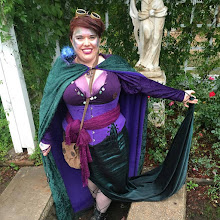Book Info:
The Book Thief by Markus Zusak. Random House Children's Books, 2007.
Liesel Meminger is sent to live with the Hubermanns after her mother is branded a "Kommunist" by the Nazis. On the trip to the Munich suburb where the Hubermanns live, Liesel little brother dies, which is how the narrator, Death, first meets Liesel. This is also when she steals her first book, a gravedigger's handbook, even though she cannot read. This act leads to many more acts of theft and vandalism as Liesel struggles to learn to read with the help of her foster father Hans and as she struggles to understand what exactly is happening in her country. When a Jewish man shows up on her foster parents' doorstep, Hans and Rosa take him in, despite the very dire trouble they would get into were they found out. They hide Max, and Liesel and he steadily become friends, but their situation becomes quite dire when the Allies begin bombing Munich and other areas of Germany. While Liesel works through these problems with reading and writing and small acts of rebellion, the war that goes on around her constantly threatens to destroy her and her family's lives.
My Take:
I had been looking forward to reading this book ever since I looked through the reading list for historical fiction (one of my favorite genres); this didn't disappoint. A fantastical tale narrated by Death but told in such a realistic way that the horrors and atrocities aren't lost despite the sometimes fantastic way the story's told. Though this book was hard to read given the source material, Liesel's determination to fight against the Nazi oppression, no matter how small her fight might be makes for a compelling read, one that was hard to put down once I'd picked it up. The most affecting moments were when Max went away to keep the Hubermanns from being found out, when Liesel witnesses him being marched to a concentration camp, and when Rudy finally gets his kiss from Liesel only after he has died. I also really enjoyed how, using Death as the narrator, events jumped around every once in a while, with Death almost preparing the reader for something sad and tragic that was going to happen several chapters away.
Reviews:
School Library Journal (March 01, 2007 ; 0-7393-3800-5 )
Gr 9 Up-With Death as narrator, Markus Zusak's haunting novel (Knopf, 2003) follows Liesel Meminger, The Book Thief, through the fear-filled years of Nazi Germany. The story opens as the ten-year-old girl takes her first book shortly after her younger brother's death. Both children were en route to the foster home of Hans and Rosa Hubermann in a Munich suburb. Despite Rosa's sharp tongue and Hans's lack of work, their home is a loving refuge for the nightmare-ridden girl. It also becomes a hideout for Max, a young Jewish man whose father saved Hans's life. Liesel finds solace with her neighbor Rudy and her creative partnership with Max. Accompanied by Rudy, the girl copes by stealing food from farmers and books from the mayor's wife. There are also good moments as she learns to read and plays soccer, but Hans's ill-advised act of kindness to a Jewish prisoner forces Max to leave their safe house. The failing war effort and bombing by the Allies lead to more sacrifices, a local suicide and, eventually, to great losses. Reading books and writing down her experiences save Liesel, but this novel clearly depicts the devastating effects of war. Narrator Allan Corduner defines each character with perfect timing. He's deliberate as the voice of Death, softly strong as Liesel, and impatient, but not unkind, as Rosa. With richly evocative imagery and compelling characters, Zusak explores behind-the-lines life in World War II Germany, showing the day-to-day heroism of ordinary people. Relevant for class discussions on wars both past and present.-Barbara Wysocki, Cora J. Belden Library, Rocky Hill, CT Copyright 2007 Reed Business Information.
Suggestions:
This book would be great in a classroom discussion after looking at the events of World War II from a historical perspective. In that case this book can be used to give a more personal experience of the War and how it affected not only the world but also random and seemingly unimportant people.


No comments:
Post a Comment